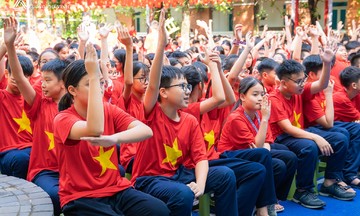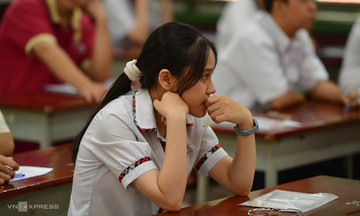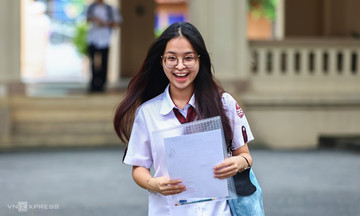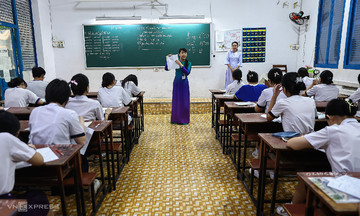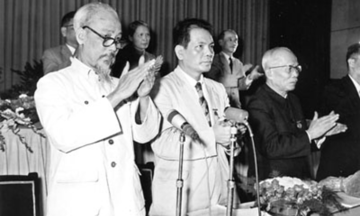In early August, Dajiang International School in Guigang City, Guangxi Zhuang Autonomous Region, held a graduation ceremony for the class of 2025. Many students received awards for university acceptance, with the amount based on the institution they would attend.
A female student surnamed Lou, accepted to Tsinghua University, received one million CNY. Tsinghua is one of China's most prestigious universities, ranked 12th globally by THE.
The school attracted attention by stacking the cash in a tall pile on stage, accompanied by a red banner displaying the amount.
"The school placed the money on a chair, stacked like a small hill. I was truly shocked when I saw it," an attendee recounted.
"I'm so envious of this girl, possessing one million CNY at such a young age," another said.
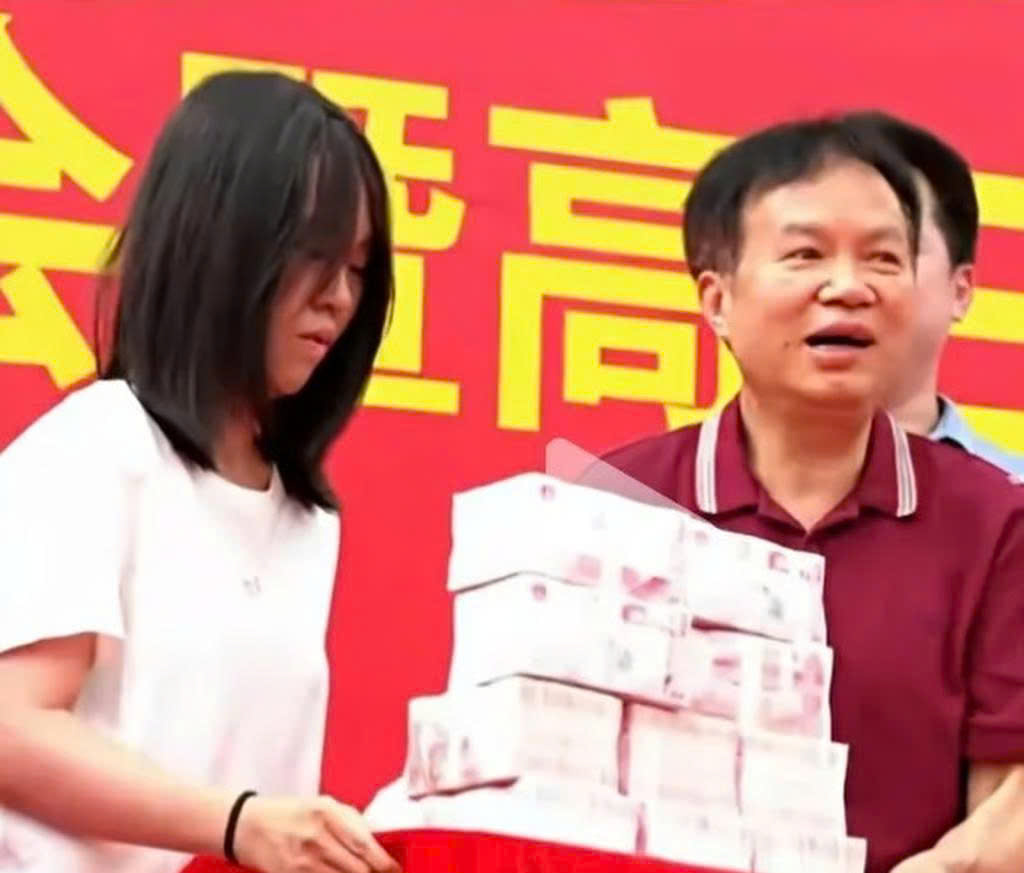 |
Dajing International School awards cash to a student accepted to Tsinghua University. Photo: Jiupai News |
Dajing International School awards cash to a student accepted to Tsinghua University. Photo: Jiupai News
Images of the event quickly spread on social media, sparking debate. Some expressed admiration, while others criticized the school for its ostentation and for instilling in students the idea that learning is tied to material gain.
Besides Lou, students accepted to Zhejiang University and the University of Hong Kong each received 150,000 CNY (550 million VND). Those admitted to Huazhong Agricultural University received 10,000 CNY (36.6 million VND).
The cash awards prompted intervention from the Guigang City Department of Education due to violations of regulations.
"We have requested Dajiang School to cease this practice," an unnamed official told Jiupai News on 12/8, adding that the city government discourages schools from publicizing students' university entrance exam results.
Chen Zhiwen, a member of the China Association for Educational Development Strategy, emphasized that the Ministry of Education has for years been rectifying and addressing similar actions.
"The question is why schools are still willing to risk violating these regulations. Behind this is an excessive inflation of the value of so-called high-quality educational resources," he said.
According to a Dajing representative, the reward amounts are based on university rankings and adjusted annually. In 2022, the reward for students admitted to Tsinghua or Peking University was 500,000 CNY. Students accepted to mid-tier universities received about 3,000 CNY.
Xiong Bingqi, a Shanghai-based expert, believes the school's reward policy is merely a marketing ploy to promote itself and attract high-achieving students.
"Schools should not instill in students the self-serving notion that learning will bring significant financial benefits," he told Beijing News.
He believes schools should focus on long-term development and guide students in formulating their educational plans and their own lives.
China's university entrance exam (Gaokao) has long been considered one of the most intense in the world. Students must complete exams in: English, Chinese, mathematics, a main elective subject (physics or history), and two supplementary subjects (chosen from chemistry, geography, political science, and biology). The total score is 750.
In 2025, the exam drew approximately 13.35 million candidates, slightly down from the record 13.42 million the previous year. The acceptance rate for the top two universities, Tsinghua and Peking, is estimated to be only about 0.05%.
Huyen Trang (according to SCMP, Jxnews, Jiupai News)



